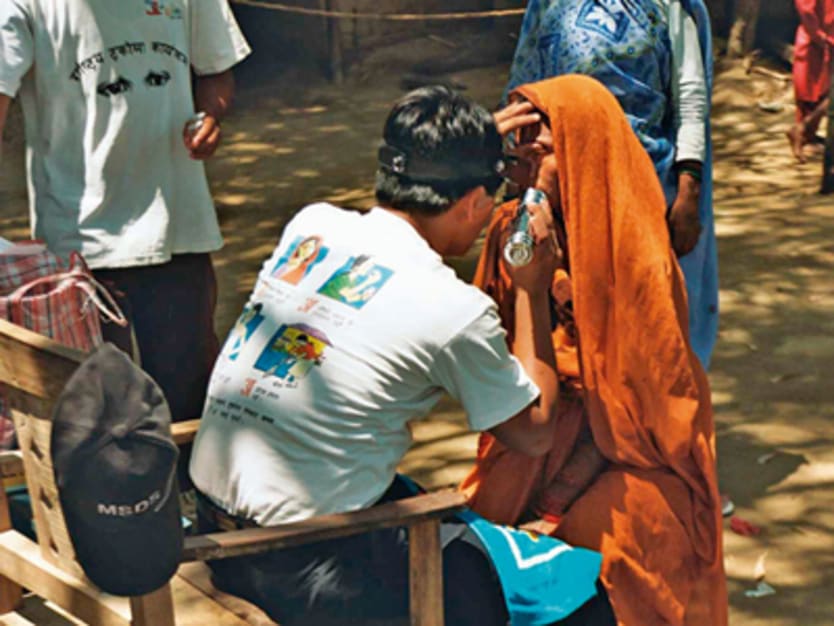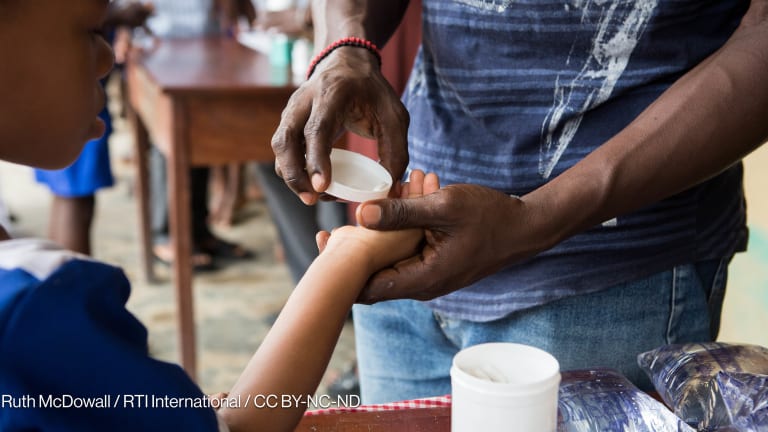
EDITOR’S NOTE: Has the big push to meet the Millennium Development Goals overlooked other health objectives? Overseas Development Institute’s Dr. Fiona Samuels shares opinions on how to better coordinate the global health and development agendas, especially regarding Neglected Tropical Diseases.
What role have the Millennium Development Goals played in keeping health issues on the global agenda — what have they helped and what have they hindered?
This question arose partly from the interest of the Development Progress project in engaging with the MDG debate as we approach their 2015 deadline and look ahead to the creation of a new development framework and partly as a result of our particular interest in Neglected Tropical Diseases.
The background work for our country case studies on NTDs revealed strong linkages to all the MDGs. Yet, until recently, they have barely received a mention in the MDG debate. There are encouraging signs, such as Justine Greening’s announcement last week that the U.K. Department for International Development will be spending part of a £138 million investment on fighting NTDs, but the overall picture has been one of neglect. Why is this? Could it be that the big push to achieve certain health-related MDGs has overlooked some areas of public health that offer the most cost-effective treatment approaches? We explored this issue in a working paper on why NTDs matter in reducing poverty.
Andrew Rogerson shared similar concerns, highlighting the MDG’s neglect of Noncommunicable Diseases, which include road traffic deaths, cancer and diabetes. As a recent report highlights, NCDs are becoming Africa’s “hidden epidemics,” with road accidents expected to become the biggest killer of children aged 5-15 by 2015, outstripping both malaria and AIDS. Rogerson also raised the shortcomings of the MDGs when it comes to morbidity and its life-long impact on productivity and growth — an issue that also chimes with the NTD debate. He called for greater flexibility and creativity in the health arena and for an effective balance between support for health systems and for specific diseases in an era of austerity.
Romina Rodriguez Pose outlined what it really means to be a frontline worker — a community drug distributor — dealing with NTDs in Sierra Leone. While the success of the NTD programme in Sierra Leone can be credited to many factors (as will be outlined in a forthcoming Development Progress case study), it is clear that the CDDs have played a pivotal role. It is often such community-based initiatives that guarantee the acceptance and sustainability of health programmes and initiatives, an aspect which has been highlighted in other case studies, like Bangladesh. Yet the crucial role of community involvement and engagement is not given enough attention in the MDG debate, even though it has underpinned success on many MDG targets, both health and non-health related. Perhaps some learning from the NTD sector as well as others, such as the HIV sector, could prove useful in post-2015 discussions.
Adam Wagstaff from the World Bank lamented the fact that the post-2015 health agenda appears to be “stuck in the doldrums,” with the only hint of new thinking coming from the addition of a vague suggestion of targeting priority NCDs — but this is subsumed within an old target and looks very much like an afterthought. Additionally, he points out that the health targets we have today are even less relevant to large parts of the global population than the ones we had in 2000. Despite this, he suggests there is cause for optimism and challenges us to work together to create a post-2015 health agenda that is “modern, ambitious and genuinely universal.”
Andy Wright provided a view from the private sector, where pharmaceutical companies have contributed to the success of the NTD movement by providing cheap and even free drugs. He outlined ways to advance and maintain momentum on the MDGs, including identifying specific and clear measures of progress, regular reporting and setting both short and long-term goals. The successful private-public partnerships (like those announced by Justine Greening) that surround NTD campaigns provide useful learning for other programs and sectors — learning that could also help to push NTDs and perhaps also NCDs higher up the post-MDG agenda.
Finally, Kumanan Rasnathan spelled out some key omissions in the health MDGs — including NCDs, disability and mental health — and their failure to address equity in health as a human right. Kumanan considered lessons for the post-2015 agenda as well as the limitations of the U.N. High-Level Panel Report, including the continued lack of linkages between health and broader issues of poverty and development, such as the social determinants of health. Although efforts are being made to extend the MDGs by developing goals and targets linked to nutrition, sanitation and the reduction of violence, there is still a long way to go on all of these areas.
The work of Development Progress and the Overseas Development Institute is helping to bridge the gap between health and broader issues of development and poverty that arguably remain siloed in current debates. This is largely because of the way the MDGs were formulated, tending to reinforce often inflexible sector-based approaches. As such, any chance of backwards and forwards linkages, interconnections and overlaps between the MDGs has been difficult to imagine or operationalize.
Whilst our stories of progress on health may start from a purely health perspective, they invariably have to look at factors that go beyond the sector itself (such as access, delivery and human resources), as well as considering cross-cutting issues and multi-dimensional concerns. An exploration of political economy is also vital, as it shapes the quantity, quality and suitability of the healthcare on offer. We also need to consider the impact of empowerment, participation and community engagement and the role of education and other sectors in the health and broader wellbeing of citizens.
Edited for style and republished with permission from the Overseas Development Institute. Read the original article.




